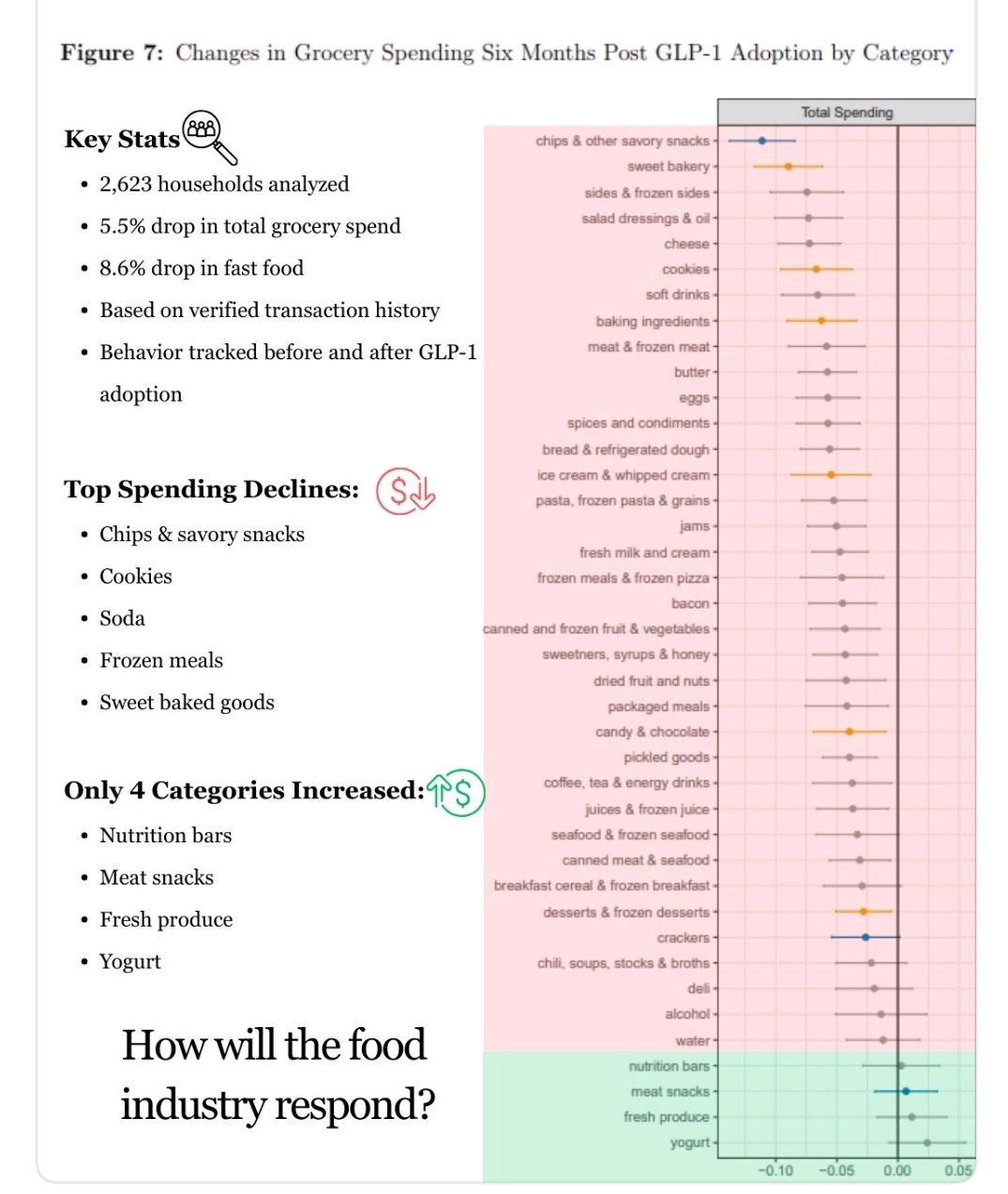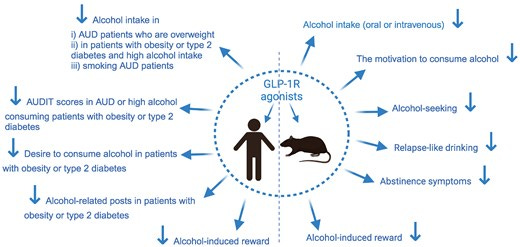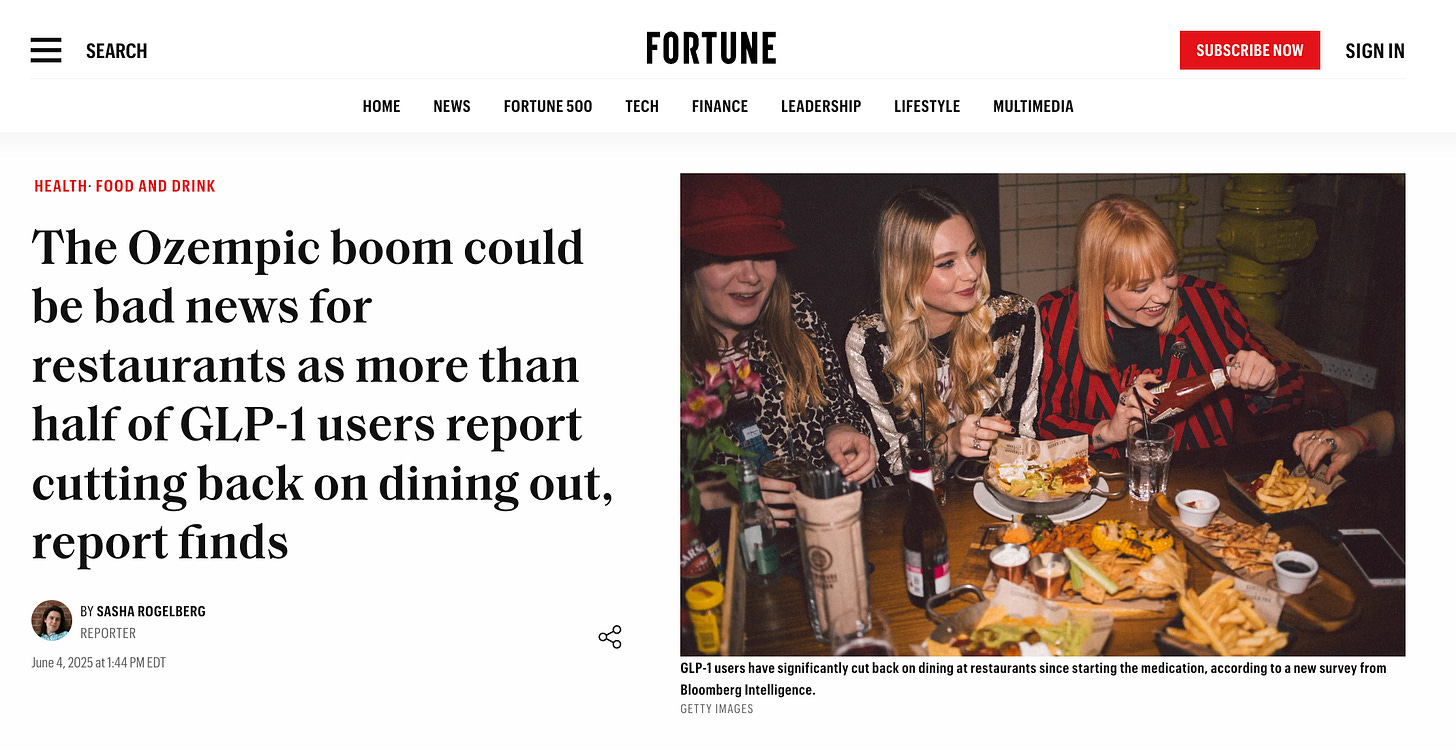Weight Loss Drugs: the Black Swan that's Threatening the Wine Industry
A few years ago, nobody had heard of Ozempic, Wegovy or Mounjaro. Now they are part of a growing number of people's daily life. And a possible threat to wine.
(This post had minor edits on 16/07/25 to clarify the last paragraph)
In business, as in life, we would all do well to be aware of ‘Black Swans’ - occurrences defined as rare and unpredictable, with severe consequences.
Trump tariffs and Putin’s most recent invasion of Ukraine are not Black Swans. Anyone who was paying attention to the current US president’s first administration and the Russian leader’s annexing of Crimea, should have seen both coming - at least potentially.
GLP-1 (Glucagon-Like Peptide-1) drugs however, look like being a Big Black Swan for food and drinks businesses.
As ‘veteran investor’ Terry Smith said in January as he divested his £22.5 billion Fundsmith Equity Fund from Diageo
“We suspect the entire drinks sector is in the early stages of being impacted negatively by weight-loss drugs… Indeed, it seems likely that the drugs will eventually be used to treat alcoholism such is their effect on consumption”.
Jamie Ross, a portfolio manager at Henderson EuroTrust, was less certain, but still concerned, asking
“Will people taking weight-loss drugs drink less alcohol? Will they avoid frozen food? Will sugar consumption be hit? These are all questions that inform investment decisions today but the answers will not be visible for several years to come.”
Background
While they have a relatively long history of treatment for diabetes, it was as recent as 2014 that a GLP-1 agonist - a substance that mimics the actions of a neurotransmitter or hormone to produce a response when it binds to a specific receptor in the brain - called liraglutide was approved by the FDA in the US for weight loss, under the brand name Saxenda.
It took another seven years for Semaglutide, another GLP-1 agonist used in a diabetes drug called Ozempic, to be approved for weight loss as Wegovy.
To illustrate how little focus the pharmaceutical companies initially placed on the potential market for GLP-1, one merely has to look at the way Novo Nordisk, Semaglutide’s Danish developer, behaved in Canada where, in 2019, it failed to pay the annual CAN$250 ($185) fee to the Canadian government to maintain its patent.
As Fortune reports, the company was offered a second chance to protect the drug - for CAN$450, but again to failed to do so. Which explains why, next year, the Canadian patent on Ozempic and Wegovy will expire, opening the door to inexpensive generic versions, just across the border from the US.
(Repeatedly failing to maintain the patent on a diabetes drug was probably a sackable offence, but Semaglutide clearly wasn’t high on anyone’s list of priorities.)
Canadian generics
Sandoz, a Swiss pharmaceutical giant that specialises in ‘biosimilars’ and ‘standard and complex generics’, has already revealed that that it plans to launch a generic GLP-1 drug in Canada next year.
The Ozempic patent also expires next year in China, the nation where over half the population of adults is now obese or overweight. So, stand by for a flood of Chinese generic versions coming to an online retailer near you.
The drug has a little further to run in other markets, but only until 2031 in Europe and Japan and 2032 in the US.
Mounjaro’s patents can be challenged from 2026, but it seems likely that they will not expire until 2036 - which is still not a very long way over the horizon.
Follow the money
Obesity - and the conditions associated with it - has been identified as an increasingly important area for the medical sector. As a 2025 Deloitte report, illustrates, it has shot up the league table of projected revenue with remarkable speed.
While falling prices are going to boost sales, so are the other benefits that may be associated with GLP-1s. According to Deloitte, potential treatments include “Alzheimer’s disease, obstructive sleep apnoea (OSA), osteoarthritis and cardiovascular indications including chronic heart failure (CHF), peripheral vascular disease (PVD) and hepatic & biliary conditions such as non-alcoholic steatohepatitis (NASH).”
As the authors say
“When questioned about the potential of GLP-1s for treating other conditions, such as cardiovascular or neurological diseases, sentiment was highly positive. Half of the respondents are somewhat optimistic, and 32 per cent are very optimistic, indicating strong belief in the broader therapeutic potential of this novel mechanism of action”
So why should food and drinks companies be concerned?
The first evidence comes in a December 2024 paper called The No-Hunger Games: How GLP-1 Medication Adoption is Changing Consumer Food Demand by Sylvia Hristakeva and Jura Liaukonyte of the Cornell SC Johnson College of Business which found that
“Households with at least one GLP-1 user reduce grocery spending by 5.5% within six months of adoption, with higher-income households reducing spending by 8.6%. These reductions are driven by large decreases in purchases of calorie-dense, processed items, including an 11% decline in savory snacks. While most food categories see spending declines, spending on nutrient-dense options, such as yogurt and fresh produce, shows directionally positive but statistically insignificant changes. We also find an 8.6% decline in spending at fast-food chains, coffee shops, and limited-service restaurants.”
In the UK, the Times noted that “Retail analysts Kantar, reported that grocery sales had reversed their previous trend by falling by 0.4 per cent over a four-week period in June, and said that “Supermarkets and grocery brands are entering new territory as weight-loss drugs become more popular, with four in a hundred households in Britain now including at least one GLP-1 user.”
But what of alcohol?
A recently published report by the Endocrine Society considered the possible role of GLP-.1 treatment against alcohol use disorder (AUD). While over-consumption affects a minority of drinkers, that cohort in the US amounts to a fairly sizeable 10.2%.
In any case, the research found that preclinical studies on rodents
“demonstrated that GLP-1 receptor agonists decrease alcohol intake, reduce the motivation to consume alcohol, and prevent relapse drinking by potentially lowering alcohol-induced reward. These preclinical results have been confirmed and extended in human studies.
The report continues
A social media study analyzing anonymous online reports demonstrated that individuals, without reported weight, on GLP-1R agonist treatment self-report a lower incidence of desire to consume alcohol, interest in alcohol, and alcohol consumption.
Similarly, machine learning analysis of social media posts revealed that semaglutide reduced alcohol-related posts—such as expressions of desire, craving, and negative effects—among overweight individuals and those with type 2 diabetes who consume high levels of alcohol.
Less dining out
Even if the drugs don’t turn people off alcohol, they may reduce the number of occasions in which they would previously have been expected to order a bottle of wine or a cocktail.
Another Fortune report quotes a Bloomberg Intelligence survey of 1,000 GLP-1 users in the U.S. which found that over half - 54% - of respondents said they dined out “significantly less” or “less” frequently since starting the medication.”
Some possible good news
If all of this makes you feel that Terry Smith might have been correct in deciding to get out of alcohol altogether, there is some hope. As Reuters reports, spurred on by the prospect of an anti-obesity gold rush, and prompted by the loss of muscle associated with the current crop of drugs, a number of pharmaceutical giants are working hard to create alternative treatments that work differently and thus may not have the same negative impact on food and wine consumption.
But these, of course, will be a lot pricier than all those generic GLP-1s that are heading our way.
I’d be wary of writing off the threat of the Black Swan just yet.
Apart from writing these posts and working on le Grand Noir and K’AVSHIRI, the two wine brands I helped conceive and co-own, I also offer strategy and marketing consultancy and a range of public speaking.
If you think I can be of help to your business, or would just like to get in touch, please contact me at robertjoseph@winethinker.com










